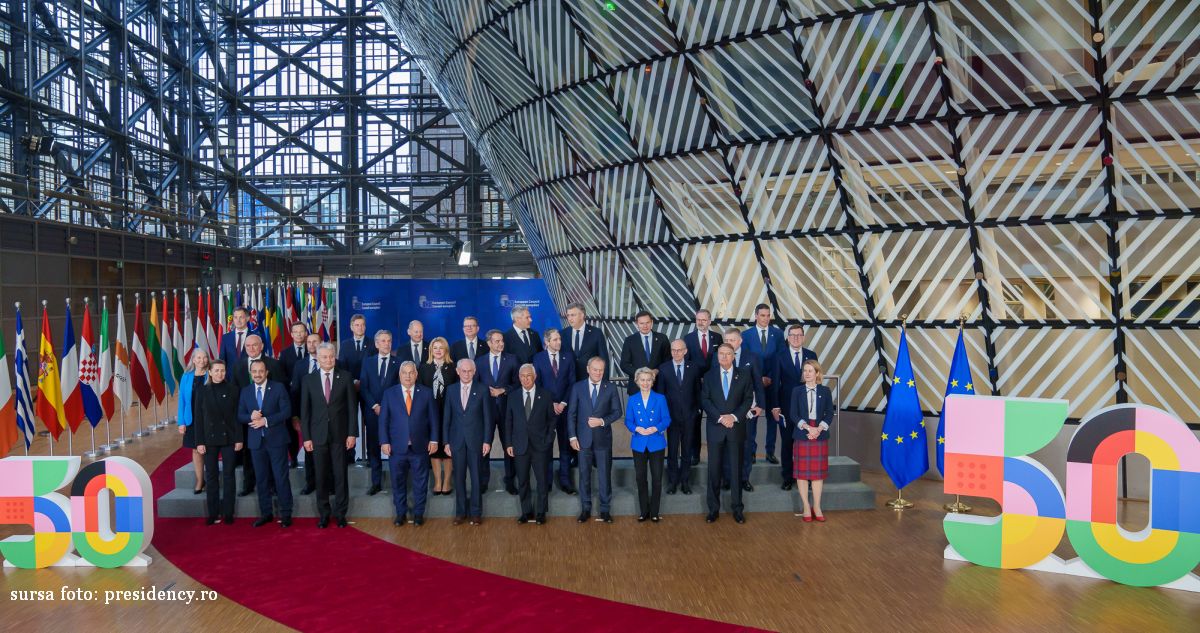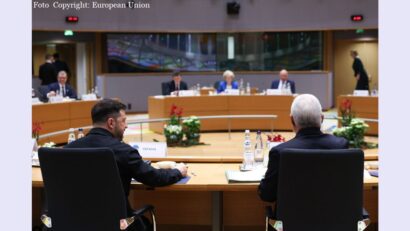Conclusions of the Winter European Summit
The war in Ukraine, the EU-US commercial relations, the situation in the Middle East and Russia's interference in elections in Romania, the Republic of Moldova and Georgia were among the topics discussed at the European winter summit in Brussels

Sorin Iordan, 20.12.2024, 13:50
The EU heads of state and government gathered in Brussels to discuss the war in Ukraine, migration, the situation in the Middle East, the Republic of Moldova and Georgia, the EU’s response to crises and Russia’s interference in the Romanian elections. Invited to the winter European Summit, the Ukrainian President Volodymyr Zelensky said that what his country needed the most was for both the European Union and the United States of America to keep supporting Kyiv. Zelenskiy added that he wanted Donald Trump, back to the White House as of January 20, 2025, to be on Ukraine’s side in the war against Russian invasion and stressed that Ukraine would need security guarantees from the EU and the US in order for long-term peace to be ensured.
Trump’s return as head of the United States is a matter of concern for the European states, which expect his sovereignist policy to affect commercial relations again, as happened in his previous mandate. There is fear that the new American administration could increase import tariffs for European products by up to 20%. In this context, the High Representative of the European Union for Foreign Affairs and Security Policy, Kaya Callas, has stated that the two blocs should avoid a trade war at all costs because both economies would be affected. There is no winner in a trade war, she said, and if we were to face such a scenario, China would be the one that would have the most fun.
Another widely debated topic was that of Russia’s interference in elections. Present at the summit, Romanian President Klaus Iohannis stated that Moscow’s behaviour is not only a threat to Romania, but to all democracies. He called on all the EU states to work together, including at the level of information exchanges, so that such interferences can be quickly detected and countered. Regarding this topic, the Prime Minister of Poland, Donald Tusk, said that all European leaders, including the skeptics, were now aware of the aggressiveness used by Russia to destabilize the democratic systems of the EU states and gave as an example Russia’s interference in Georgia, the Republic of Moldova and Romania.
Last but not least, the European leaders discussed the developments in Syria, after the ousting of Bashar al-Assad. The European states stressed that they had established diplomatic contacts with the new leadership, but that they were waiting for facts from the new government in Damascus in order to continue their financial and humanitarian support. The EU is interested in the situation stabilizing in order to be able to repatriate some of the Syrian refugee migrants to Europe, given that their presence has exacerbated social tensions and led to the growth of the extreme right in political terms. (MI)






























